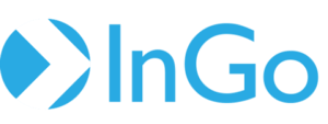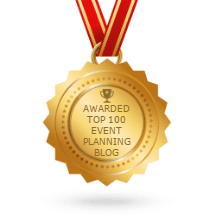There’s no doubt that the use of big data has exploded over the past few years with every industry – from finance to manufacturing – leveraging it for smarter and faster decision making. Whether it’s boosting sales, rolling out a new product, or improving the customer experience, data can play a critical role in optimizing multiple aspects of any business. And the same is true for the events industry. Planning and executing successful events starts with data, and leveraging it (with the right tools and strategies) can take your strategy to the next level.
Get to know your audience with data
Understanding your audience – their wants, needs, and challenges – can be a major key to unlocking events that meet your goals. The possibilities are endless for ways you can capture critical information about your target audience, whether it’s a survey, poll, or registration information. Job titles, geographic and demographic information, likes, and dislikes can all provide key insights into what type of event your audience is looking for. This data also allows you to better personalize an event experience for key segments of your audience.
Consider collecting information such as:
- Organization and job title
- The types of events they’re interested in attending
- What topics and subjects interest them
- Which social platforms they use the most
- What they’re hoping to get out of your next event (e.g., learning something new or networking)
- What session formats they’re most interested in
- Whether they’re interested in attending events virtually or in-person
Sharpen your event messaging
Data (including what you know about your audience) can help you tailor and sharpen messaging around your events, helping to draw in more attendees. For example, you can experiment with email A/B testing to see if different versions of messages resonate more with your audience. You can also try a similar tactic for your website with heat-mapping or other site engagement tools to see which messages your visitors engage with the most. Honing effective messaging around your event can help you better reach your objectives.
A few observations to make while investigating the data include:
- Is there specific CTA language that people prefer (e.g., register now vs. sign me up)?
- Are video recaps or teasers popular with website visitors?
- Are visitors more interested in the agenda or do they go straight to the speaker lineup?
Optimize in real-time
Depending on the type of event management platform you use, it’s possible to collect feedback data to optimize and tailor elements of your event in real-time. For example, you can throw out a few poll questions about a particular session on an event app and use the feedback to make adjustments to another session the next day. You can also send push notifications to attendees’ devices to remind them of upcoming sessions or to notify them of a change in the schedule.
Leverage word of mouth
Referral marketing can be a powerful event marketing tactic. After all, 83% of people trust word-of-mouth recommendations from friends and family while 92% of consumers trust word-of-mouth referrals more than all other forms of advertising. And when you leverage your brand ambassadors to promote your event, you can get candid feedback and data to better shape your marketing strategies and tactics.
For example, the InGo platform empowers your speakers, sponsors, and attendees to leverage their networks to influence them to attend your event. And you can get solid ROI data to help you understand how effective this tactic was and make adjustments moving forward.
Was your event a success?
Perhaps the most important question an event professional has to answer is “was the event a success?” And as most event planners know, this can be a tough one to answer. But to improve future events or justify their budget, it’s a question that has to be answered in a meaningful way. This can be done by having a clear understanding of your goals and what you hope to accomplish. This information can help you set indicators of success and collect data to assess outcomes. For example, if your goal is to increase registrations, you may want to collect data around email click-throughs or social media shares.
Some common goals around event strategies include:
- Increase networking opportunities
- Generate revenue
- Deliver better experiences
- Increase registrations
- Enhance brand awareness
- Increase sponsorship revenue
- Generate a sales or marketing pipeline
- Educate/appreciate/engage customer
Personalize the attendee journey
Most of us have come to expect a personalized experience in many aspects of our lives, and the same is true for events. Cookie cutter events with a keynote speaker in a hotel ballroom are no longer engaging or interesting enough to hold today’s audience. With data, you can build tailored experiences that make your attendees feel appreciated and understood.
With the right data and the right tools, you can customize messages and offer different content and networking opportunities based on attendees’ preferences and interests. For example, if your data shows that the bulk of your audience falls into three buckets of marketing, sales, and C-suite executives, you can design personalized tracks and networking opportunities for each group. Or, if you have attendees from different geographic regions, you can create content around that with localized language and context.
Data is gold
The power of data to improve and optimize your event strategies cannot be overstated. Whether it’s improving your event messaging, gaining insights into your audience, or leveraging referral marketing, data can be a goldmine of information to enhance and improve your events. Event marketers should take a page from other industries’ playbooks and find the strategies, tools, and tactics to leverage big data to help them work smarter, not harder.
At InGo, we can help solve your biggest event marketing challenges and utilize data from actual attendees to knock your next event out of the park. Reach out today to see how we can partner together.


